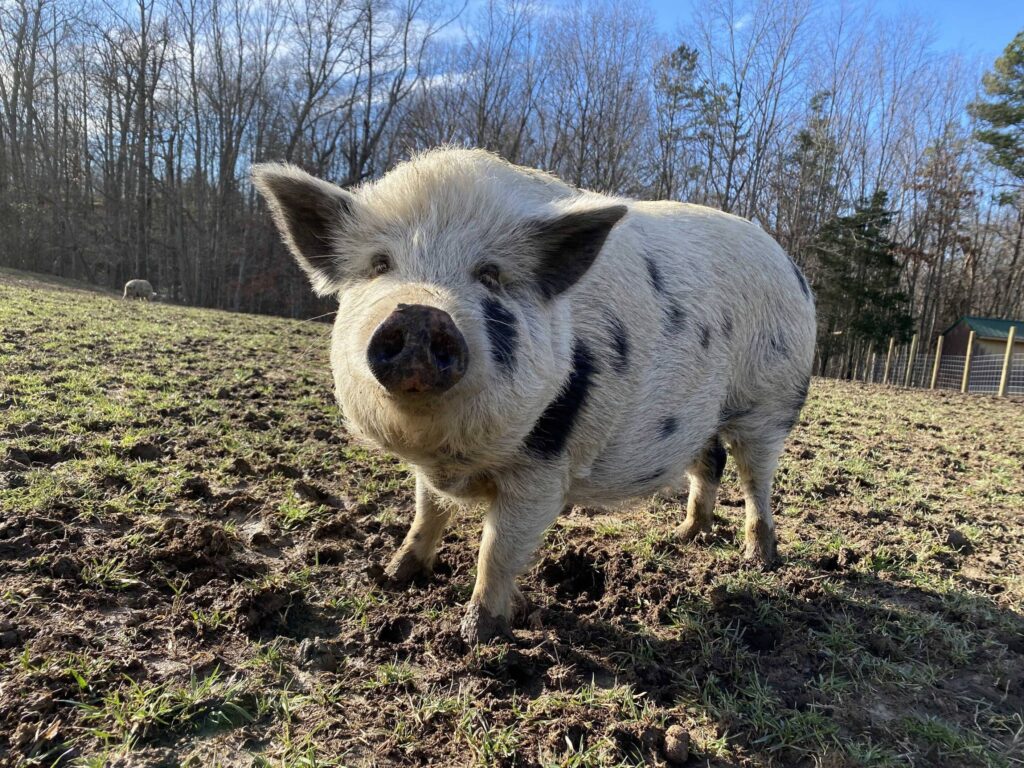Anita was part of the first litter born to Momma Memphis here under the former administration. She is one of the MANY spotted little Fuzzy Ferals who live in the Feral neighborhood. Interestingly, Anita has chosen to bond closely with the original four of the Fuzzy Feral clan, including her mother, Momma Memphis, and her father, Martin. She’s a daughter who chooses to stay home with her parents! She’s easily identified by a perfectly round polka dot on her cheek and a sleek white coat. She’s a shy girl who was a fortunate recipient of one of our many spays, which further improved her chances for a long and healthy life with her family.
The Fuzzy Ferals
The Fuzzy Ferals started with just four pigs, but grew to a herd of eighteen in just four short months. Momma Memphis arrived from the Memphis Animal Shelter in October 2018 under the care of the former administration of this property. She was accompanied by Martin and Coretta, both fully grown, and baby King. Shortly after arriving, she gave birth to seven spotted babies, many of whom resembled Martin. Four months later, because King was neutered too late, she gave birth to seven more fuzzy little potatoes who all resembled King.
Prey animals like pigs are extremely efficient at procreation because the survival of their species depends on it. Females can become pregnant as soon as they deliver, and they can have three litters of up to fifteen babies a year. Males are fertile very quickly, which means caregivers need to exercise extreme caution when they have an unaltered male on the property.
The Fuzzy Ferals were spayed once OMI took over the Tennessee property, which further improved their chances for a long and healthy life. Female pigs are highly susceptible to reproductive abnormalities if left unspayed, which can significantly impact the quality and length of their lives. Not only are the Fuzzy Ferals living in safety with their family, but they have now received full Sanctuary Babe status with the addition of an appropriate level of species-specific healthcare.

